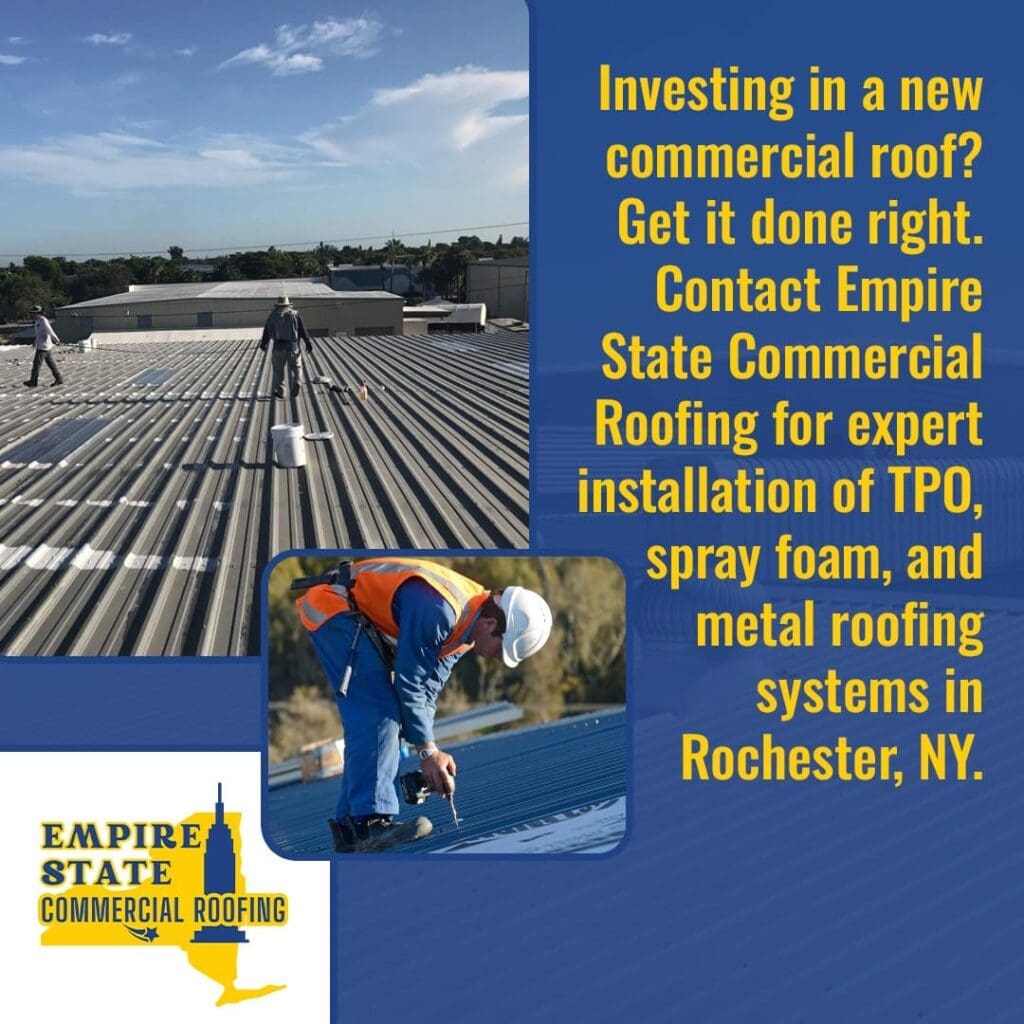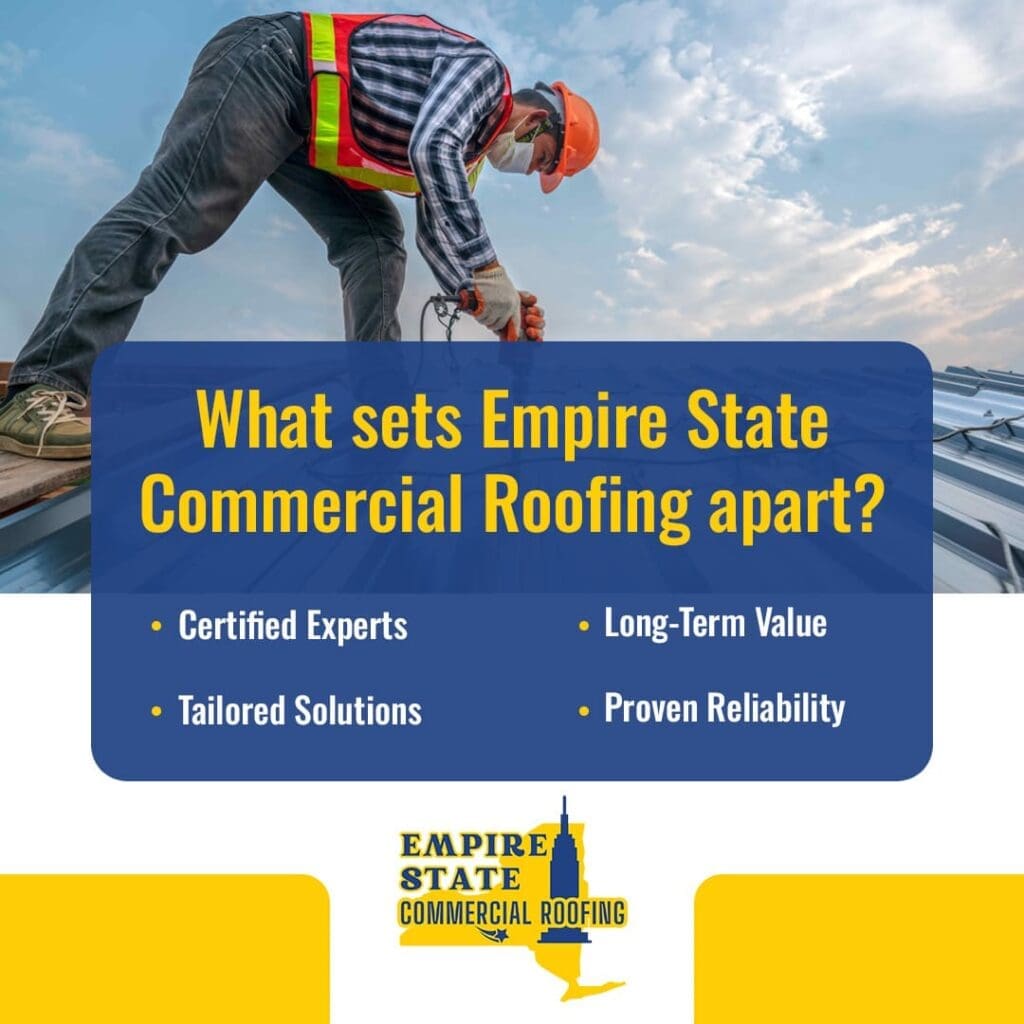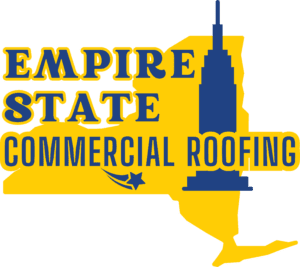A commercial roof plays a vital role in safeguarding every business property, protecting its structure, assets, and occupants from the elements. It shields your building, equipment, and people from harsh weather while supporting insulation and energy efficiency. This guide to commercial roofing outlines key do’s, don’ts and proven best practices to help your next project succeed. Installing a roof correctly requires careful planning, technical precision, and attention to local climate conditions.
If the installation process is rushed or overlooked, it can lead to leaks, higher energy costs, and unexpected repair bills. A well-executed roof installation protects your investment, improves efficiency, and strengthens long-term performance. With insight from Empire State Commercial Roofing in Rochester, NY, property owners can make informed decisions and achieve long-term protection year after year.
Commercial Roof Installation Process Explained
A successful commercial roof installation starts with careful planning and a thorough understanding of the building’s structure. The process begins with a detailed inspection of the existing roof and surrounding systems, allowing contractors to develop a project plan tailored to the property’s design and local climate conditions.
In Rochester, NY, factors such as snow loads, freeze-thaw cycles, and low-slope considerations must be addressed to support long-term performance. Choosing the right materials, including membranes, coatings, or spray foam, depends on durability, energy efficiency, and the building’s unique requirements. Each layer must be installed carefully to prevent leaks, water pooling, or thermal inefficiency.
Property owners can take an active role by reviewing project timelines, installation steps, and inspection points with their contractor. This proactive approach helps maintain quality throughout the project, minimizes delays, and supports a roof structure that performs reliably through Rochester’s harsh winters and changing seasons.

Choosing a Qualified Commercial Roofing Contractor in Rochester, NY
Choosing the right commercial roofing contractor is key to a successful installation, helping your roof perform efficiently, last longer, and meet local building standards.
Proven Expertise in Commercial and Industrial Projects
Commercial and industrial projects require expertise beyond residential work, including managing large-scale operations and complying with complex building codes. Contractors who have worked on similar projects understand how to handle flat roofing, maintain proper drainage, and reduce disruptions to daily business operations.
Consider contractors with demonstrated experience and a portfolio of similar projects. Understanding Rochester’s climate, with its lake-effect snow and freeze-thaw cycles, is necessary for designing a roof system that delivers lasting strength and performance.
Experience with Local Commercial Projects
Connecting with previous clients provides insight into reliability, workmanship quality, and customer service. Reviewing recent projects in Rochester and surrounding areas, including Painted Post, Syracuse, Canandaigua, Geneva, and Henrietta in NY, gives a clear sense of their expertise. Commercial roofing contractors familiar with regional conditions understand snow loads, freeze-thaw cycles, and other environmental factors that affect performance. Online reviews can also provide helpful insight into a company’s reputation.
One of our customers, Joseph Scheer, shared his experience: “I want to compliment Empire State commercial Roofing on an excellent job. I had a 7,000 square foot roof resurfaced and insulated. The results have been remarkable. All the pesky small leaks are gone and the place is considerably more comfortable. The crew were fantastic having great communications with them throughout the install.”
Maintenance Plans and Ongoing Services
Roofing support shouldn’t end with installation. Ask about regular inspections, preventive maintenance, and emergency repair services. Providers offering ongoing service demonstrate confidence in their work and commitment to long-term performance. Maintenance agreements often include priority scheduling, discounted repairs, and documentation that supports warranty compliance. Building this relationship gives you a knowledgeable team ready to respond quickly to any issues.
Property owners across the region trust Empire State Commercial Roofing for skilled service, local expertise, and dependable results.
Key Do’s and Don’ts for Commercial Roof Protection
Do:
- Hire licensed and insured commercial roofing experts with proven experience.
- Request a written proposal detailing the roofing products, the work to be done, and the warranty coverage.
- Schedule regular inspections in spring and fall to identify potential issues early.
Don’t:
- Ignore ventilation or drainage concerns, as trapped moisture can compromise the roofing layers.
- Cut costs by using low-quality sealants or coatings, which degrade under extreme temperatures.
- Overlook safety protocols during installation or maintenance activities.
Following these practices helps your commercial roof remain durable, energy-efficient, and reliable for years to come.
Choosing the Right System for Your Commercial Property
Every business property has unique needs. In colder regions like Rochester, NY, insulation and snow resistance are critical for long-term performance. Comparing materials helps owners choose the best option and support a smooth commercial roof installation process.
Metal Roof Restoration
This reinforces existing assemblies while improving durability against heavy snow and ice. It extends the lifespan of the current surface without requiring a full replacement, saving time and costs. Metal layers resist wear, corrosion, and weather-related damage. Proper installation provides a low-maintenance, high-performance solution that handles Rochester’s seasonal conditions effectively.
Spray Foam Solutions
Spray polyurethane foam (SPF) creates a continuous, insulated barrier that seals gaps and enhances thermal efficiency. This method reduces air leaks and helps maintain stable indoor temperatures, lowering energy expenses. SPF can be applied over older surfaces, minimizing operational disruption. With a UV-resistant coating, it forms a durable and weatherproof layer suitable for large commercial facilities.
Spray polyurethane foam (SPF) roofing is a widely utilized roofing solution proven to last and protect the structure. SPF roofing performs as an insulated roofing system that withstands extreme weather conditions such as hail, wind, and rain. (Source: Spray Polyurethane Foam Alliance)
Single-Ply Membranes
Single-ply membranes, such as TPO or PVC, offer lightweight, reflective, and flexible coverage for flat or low-slope surfaces. They reduce heat absorption and limit temperature fluctuations on the exterior. Installation is relatively fast, and these materials are resistant to UV exposure, punctures, and chemical wear. Single-ply solutions perform reliably in regions with variable weather and demanding seasonal conditions.
When planning a new roof, it’s important to evaluate warranty coverage, budget, and maintenance requirements. Reviewing different options allows property owners to make well-informed decisions before investing.
TPO and SPF Roofing: Long-Lasting Solutions for Commercial Buildings
New roofing technologies offer enhanced durability and energy efficiency, making them a smart investment for properties. A clear understanding of each system’s features and benefits is important for selecting the most suitable roofing solution.
TPO Roofing: Durable & Energy-Efficient
TPO, or Thermoplastic Polyolefin, is one of the most widely used single-ply roofing systems for commercial properties. It is cost-effective, energy-efficient, and low-maintenance, making it suitable for flat and low-slope roofs. Proper installation is critical for long-term performance. Key practices include thorough cleaning, precise insulation placement, and accurately welded seams to create watertight connections. Temperature control during welding is vital to prevent weak points that could compromise the membrane.
TPO offers strong UV resistance and a competitive service life compared with other single-ply materials like EPDM and PVC. Its durability and reflective properties help buildings in Rochester, NY, withstand freeze-thaw cycles, snow loads, and temperature fluctuations, providing a reliable, energy-smart roofing system.
SPF Roofing: Seamless Protection for Commercial Roofs
Spray polyurethane foam (SPF) forms a seamless barrier that seals cracks and gaps. It acts as a vapor retarder, weather shield, air barrier, and thermal insulator, improving both roof durability and energy efficiency. Even coating thickness, proper preparation, and a UV-resistant topcoat are key to consistent results. SPF can be applied directly over existing layers, reducing operational disruption, lowering installation costs, and extending the lifespan of the roofing system. A professional spray foam roof installation provides a uniform, watertight layer that performs reliably through Rochester’s seasonal challenges.
At Empire State Commercial Roofing, SPF is frequently used for industrial and large commercial facilities because it is durable, adaptable, and low-maintenance, delivering long-lasting, high-performance roofing solutions.

Best Practices for Roof Longevity and Performance
Regular maintenance is essential for extending the lifespan and performance of roofing systems. Implementing the best roofing practices helps prevent costly damage, preserve energy efficiency, and protect your investment over time.
Schedule Regular Inspections
Regular inspections form the foundation of preventive care and can save major repair costs. By inspecting your structure in spring and fall, you catch minor issues before they escalate. Post-storm inspections are equally important, as high winds, hail, and heavy rain can compromise the system without obvious signs from the ground. Experienced inspectors know what to check, from loose fasteners to damaged flashing and early signs of membrane wear. Documentation from these inspections is also valuable for warranty claims and insurance purposes.
Keep Gutters and Drainage Clear at All Times
Blocked gutters and downspouts are among the main causes of premature failure and water intrusion. Debris, leaves, and sediment can cause water to pool and seep into vulnerable areas. Standing water accelerates material deterioration, promotes mold growth, and may lead to leaks inside the building. Regular cleaning, especially in the fall and after storms, helps prevent these problems. Installing gutter guards reduces maintenance frequency and allows water to flow safely away from the structure.
Repair Minor Punctures or Coating Issues Promptly
Small damage left unaddressed can quickly worsen, requiring costly repairs or full replacement. Punctures from branches, hail, or foot traffic may seem minor, but they create entry points for moisture. Blisters, cracks, or thin spots in protective layers similarly accelerate wear. Quick repairs using compatible materials restore waterproof integrity at minimal cost, extending the system’s functional lifespan.
Recoating Spray Foam and Metal Roofs
The protective layer applied to spray foam or metal systems enhances appearance and reflects solar heat while protecting underlying materials from UV degradation. Over time, exposure to sunlight, weather, and environmental pollutants diminishes reflectivity and energy performance. Recoating every ten years restores the system’s ability to reflect heat, reduces cooling costs, and preserves the materials beneath. This routine task also provides an opportunity to inspect and address hidden issues before they become serious.
By following these best practices, building owners can maximize roof longevity, maintain energy efficiency, and protect their investment against costly damage over time.
Frequently Asked Questions (FAQs)
1. How can I make my commercial roof energy-efficient?
To maximize your commercial roof’s energy efficiency, choose materials such as TPO or Spray Foam. TPO’s reflective surface reduces heat absorption, while Spray Foam forms a seamless thermal barrier. Proper insulation and sealed seams further enhance energy savings and reduce cooling costs.
2. What are the common mistakes to avoid during a commercial roof installation?
Avoid poor ventilation, improper drainage, and low-quality materials. Always hire skilled contractors and adhere to manufacturer guidelines to protect your warranty and prevent expensive repairs. Skipping regular inspections can result in undetected issues affecting performance.
3. How do I choose the right roofing material for my property?
Select a roofing material based on factors like roof slope, climate, and energy efficiency goals. TPO is ideal for flat or low-slope roofs due to its reflective properties. Spray Foam offers seamless insulation and extends the life of your roof.
Get Started with Expert Roofing Solutions with Empire State Commercial Roofing
Installing or replacing a commercial roof demands skill, careful planning, and a professional team, as every stage affects the roof’s performance and protection. Working with qualified commercial roofing contractors nearby helps you avoid costly errors and achieve reliable results that stand up to Central New York’s demanding weather conditions.
If you are considering an upgrade to an energy-efficient option like Spray Foam or TPO, or need guidance in choosing the best material for a new facility, our team is ready to help. Empire State Commercial Roofing serves Rochester, Syracuse, Painted Post, Canandaigua, Geneva, Henrietta, and surrounding areas, offering expert roofing solutions to businesses in these regions. Call us at (315) 857-6988, or visit our contact page to schedule an appointment and get started on your roofing project.
